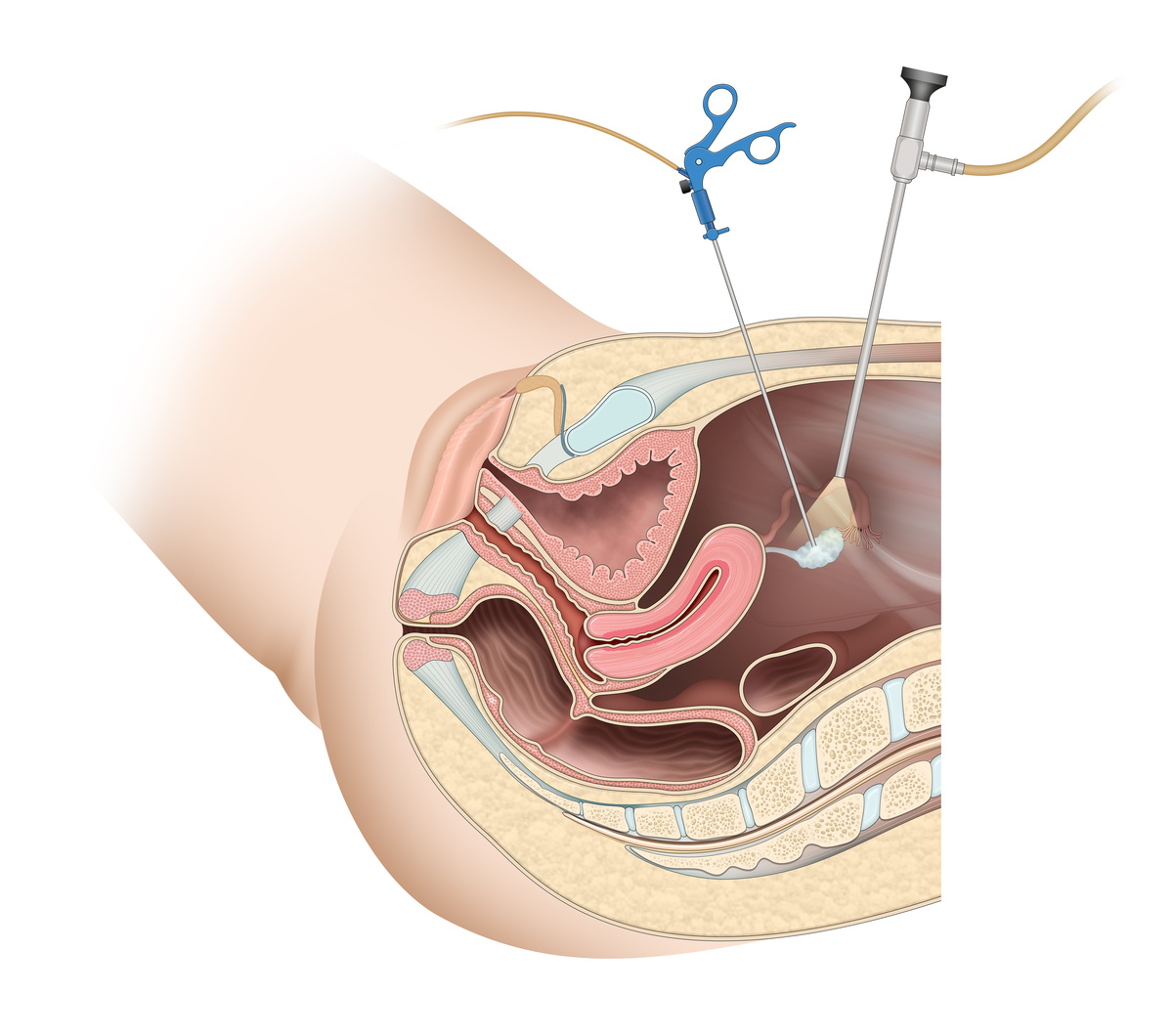Surrogacy: What it is and how it works
Surrogacy is the popular name for one of the assisted reproduction techniques available to people who want to have a baby and, unfortunately, for some reason, cannot.

You may have already seen or read some news out there addressing the subject, but this subject is a little complicated and deserves a deeper look, as this is a medical technique that can bring happiness to many people.
The desire to form a family is something so natural for us that when someone is prevented from forming their own family, psychological complications can occur and, consequently, complications in the health of the body, which can be serious, such as depression and all the health consequences.
The World Health Organization (WHO) estimates that in Latin America and the Caribbean, around 16% of couples have some infertility problem, but using some of the artificial procreation procedures enables the desired pregnancy.
Today, technology can help those in this situation, helping them make their family and life complete.
So, depending on the case, surrogacy can be a welcome solution for a couple who want to have a child, and the partner’s uterus cannot be used. Many doubts and also controversies revolve around this method of assisted reproduction.
Furthermore, there are legal issues surrounding this: can I rent any belly? What will the relationship between the pregnant woman and the child be like after birth? What safeguards do I have when carrying out this procedure?
There are many questions that may arise when faced with the possibility of using the assisted reproduction technique called surrogacy, but don’t worry; in order to clarify some of these doubts, we have prepared this text and divided it into the following points:
- What is surrogacy?
- How does surrogacy work in Brazil?
- Is there a law on surrogacy?
- Why use solidarity?
- Where can I safely perform assisted reproduction techniques?
So, if you want to know more about the subject, follow this text until the end and, if necessary, leave your questions in the comments.
What is surrogacy?
Before we talk about surrogacy, do you know what assisted reproduction is? We have prepared a text called Everything You Need to know about Assisted Reproduction where you can find out more about the topic, but in summary:
Assisted reproduction is a technique adopted by specialized doctors with the purpose of facilitating or enabling procreation by men and women who, for some reason, are sterile or infertile.
Assisted reproduction is usually associated with in vitro fertilization and artificial insemination, but we can say that assisted reproduction is any type of medical interference to help or facilitate procreation.
The technique, whether simple or complex, will be recommended after personalized follow-up with the doctor, as is done here at Chedid Grieco.
And here, it is worth saying that infertility is not a problem exclusive to women. For example, Dr. Mateus Roque, in an interview for the Bem Estar column, talks a little about varicocele , a male infertility disease already treated here on the blog.
The WHO, for example, estimates that men are responsible for 40% of cases of difficulty getting pregnant. So, in this case, surrogacy may not be necessary, but other assisted reproduction techniques. Therefore, medical monitoring is important.
But let’s get back to our topic: now that you’ve had an overview of assisted reproduction techniques, let’s move on to “What is surrogacy?”.
Surrogacy is a surrogate pregnancy that occurs when in vitro fertilization is performed and the woman who is the donor of the genetic material has a problem and cannot develop the child in her womb. Thus, the embryo is placed in another woman’s uterus, where it will develop.
With this, we even understand the term surrogacy, but despite being popular, the more appropriate term is surrogacy or supportive pregnancy because there can be no charge for the woman who will receive the embryo from her parents. Next, you will see how this works.
How does surrogacy work in Brazil?
Surrogacy (or supportive belly) works in Brazil as follows: the couple who are undergoing medical monitoring to get pregnant and, through tests, discover that the woman’s uterus is not fit to receive and develop the embryo will know that there is this option to achieve the dream of becoming parents. But to adopt this method of assisted reproduction, you need to follow some very simple requirements, see:
3 requirements for supportive belly
- If you have a problem that prevents pregnancy, this means that not everyone can adopt the supportive belly method: only women who have problems with their uterus or who are single or in a same-sex couple.
- There cannot be anything in exchange for the pregnancy; that is, whoever decides to carry another couple’s child cannot charge money or request something in return: nothing! Unlike other countries where it is possible to pay and then rent a belly.
- The woman who will be the supportive belly needs to belong to the couple’s family. Family members up to the 4th degree are allowed, so they can be grandmothers, mothers, sisters, aunts, nieces, or cousins. This is the standard guidance, but the Regional Council of Medicine may authorize other cases.
So, it’s not complicated at all, right? Of course, this intermediation must be carried out legally by a clinic specialized in human reproduction to correctly follow Brazil’s legal requirements. By the way, do you know what these requirements are? Follow the text and see.
Is there a law on surrogacy?
There is no law on surrogacy in Brazil, for now, but there are resolutions from the Federal Council of Medicine – CFM ( No. 2,168/2017) which, in addition to imposing the requirements set out above, request:
- a consent form from the woman who will be the supportive belly, as well as from her spouse, if she is married or living in a stable union, of course;
- a medical report that approves the psychological profile of everyone involved: the couple (who underwent in vitro fertilization ) and the woman who will be the supportive mother (or the woman and her spouse, if she is married);
- guarantee that there will be medical support for the woman who will donate her uterus during pregnancy;
- provision of medical support during birth, recovery, and postpartum;
- a document clarifying the issue of the baby’s parentage;
- commitment to the child’s civil registration;
Furthermore, it is possible to continue with the joint pregnancy even after the death of one of the parents (donors of the genetic material) as long as there is authorization before the death. The CFM calls this post-mortem assisted reproduction.
Furthermore, as there is no law that strictly regulates cases of assisted reproduction, including surrogacy, regional medical councils can deliberate on cases that require some type of exception.

Why use Belly Support?
Many couples seek to complete their families with children, and a supportive belly is an option for this; after all, having children is such a natural desire for men that even in the face of greater birth control and even in the face of the increase in couples who do not want children, The desire to have children is dominant.
Throughout history, having children has always been a blessing, especially at times when infant mortality was high. Thus, there were many children and only a few survived.
With the advancement of medicine, and especially with the discoveries of Louis Pasteur, there was a huge advance in medicine, as we began to know that bacteria are responsible for a large part of diseases.
Thus, medicine has gained countless techniques and treatments for the most diverse types of disease, guaranteeing a much longer survival rate for people, including children.
Much of this, thanks to preventive medicine, is part of the history of medicine itself. Check it out:
- In the primitive era, medicine and religion were united, and doctors resorted to the supernatural both for the treatment and prevention of diseases;
- In ancient Greece, there was the custom of burying feces or discarding them far from homes to avoid contamination;
- In Roman civilization, major preventive sanitary works aimed at the well-being of the large population expanded in urban centers.
Women of this century
With the increase in quality of life, health, and economic development, people began to live longer and longer, and with the achievement of women’s rights, some things in the formation of families changed.
In addition to living longer, women have started to postpone motherhood due to work, study or simply because they don’t think it’s the right time to get pregnant.
Thus, it has become common to have children aged 30, 40 or even older. Research carried out by sociologist Rosana Machin Barbosa (Gender Relations, Infertility and New Reproductive Technologies) demonstrated that:
- Women in the public service seek paternity after a few years of union with their partners:
“Motherhood here is referred to as the essential attribute of women.”
- Women in the private service try to get pregnant late to develop their careers:
“motherhood appears as another experience that we aim to live.”
However, by choosing to wait longer to have children, both the woman and her partner may experience infertility problems caused by:
- The drop in women’s fertility;
- Effect of the use of contraceptives, which, when used for a long time, can cause more or less lasting states of infertility;
- diabetes;
- trauma to the testicles;
- drug consumption;
- infections, such as prostatitis, urethritis, and urinary infections;
- varicocele;
- Sexually transmitted diseases.
In other words, there are many causes that can generate infertility in both men and women, making it difficult for couples to want to have children when they see fit. In these moments, the evolution of medicine can turn dreams into realities.
Supportive belly (or surrogacy) making dreams come true
When a couple seeks a fertility clinic specializing in human reproduction, they both undergo medical investigation. After all, the problem can be either a man or a woman.
After the procedures to find out how the couple is doing, a type of treatment is decided to make the couple’s dream come true: having a child. One of these treatments is surrogacy.
When the woman does not have favorable conditions for the development of the child in her uterus, the couple’s genetic material (egg fertilized with the husband’s sperm) is transferred to a healthy uterus.
It’s something very different, do you agree? The egg is yours, the sperm is your partner’s, but the uterus belongs to another woman in your family. But it is a dream that will come true because, in this way, infertility will be overcome, and you will be able to have a healthy child, making your dream come true.
But so that your dream doesn’t turn into a nightmare, you need to know the clinic where you want to start your treatment. Your family’s entire health is at stake, so choosing the right place to realize your dream is fundamental to your life.
Aware of this responsibility, we have prepared some considerations that will help you choose a clinic to help with surrogacy (supportive pregnancy) or another method of assisted reproduction; check it out.
Where can I safely perform assisted reproduction techniques?
If you and your partner have been trying to get pregnant for more than a year and are unable to get pregnant, you need to seek help. It’s time to look for a clinic to identify what is preventing you from realizing your dream.
But looking for a fertility clinic is not the same as selecting a product or doing price research, not at all! This is something very serious, it is a matter of life, both yours and the child to come.
Therefore, it is necessary to have good criteria when choosing a fertility clinic, we have separated 8 points that must be taken into account, see.
6 points to consider when choosing a fertility clinic
- Contact: The first point to consider is whether the clinic has channels for you to contact them; after all, you need to know them very well. See if she has a phone number, email, and address, get them, and save them for later use.
- Social networks: nowadays everyone needs to have digital contacts, right? So, check if the clinic is active on social media so you can follow its work. Here, at ChedidGrieco, for example, we have a professional page on LinkedIn, Facebook, a Twitter profile, and even a YouTube channel where you can find patient testimonials and enlightening videos about human fertilization.
- Team: check the professionals who work at the clinic, especially the doctors, their training, specialization, publications in the area, etc. Typically, you should find some information on the clinic’s website. Here, we have a tab called “ Our team,” where you can check a summary of some of our professionals.
- Blog: See if the clinic’s website has a blog where you can find publications that answer some questions about fertilization procedures and also a frequently asked questions area. This shows that the company wants to help you in various ways.
- Time in operation: Look on the clinic’s website to see how long it has been operating in the market. This makes all the difference, as it is possible to get an idea of how experienced they are. After all, we cannot leave our dreams in anyone’s hands, right?
- Visit the location: After you know the clinic well, from a distance, it will be time to go to the location to contact reception and learn about the clinic’s structure. Furthermore, you will be able to feel what the environment is like where you will spend some important moments in your life.
By following these points, you will be able to get to know a little better the clinic that will play a fundamental role in making your dream come true, so the more you know about it the better it will be for you.
Because your family’s future is in the hands of professionals who need to be committed to you. So follow all these tips and pursue your dream responsibly.
Conclusion
We have reached the end of the article, where you can learn a little more about what surrogacy is and how the legislation works, the legal prerequisites for carrying out assisted fertilization and the advantages.
Furthermore, we made a historical-social summary to contextualize and facilitate our understanding of why some couples are unable to fulfill their dream of having a child. This motivates us to move forward.
And finally, we present 6 essential points for looking for a human fertility clinic that can make your dream come true safely.
From now on, you know how to pursue your dream. Know that everyone at Chedid Grieco works with a lot of love to make your dream come true but with a lot of responsibility.
So, our evaluations are realistic and frank so that you know all the pros and cons of carrying out assisted reproduction through surrogacy, or better still, supportive gestation.
Follow what you want to do and be happy. Know that if you need help, we are here to help. Contact us.







